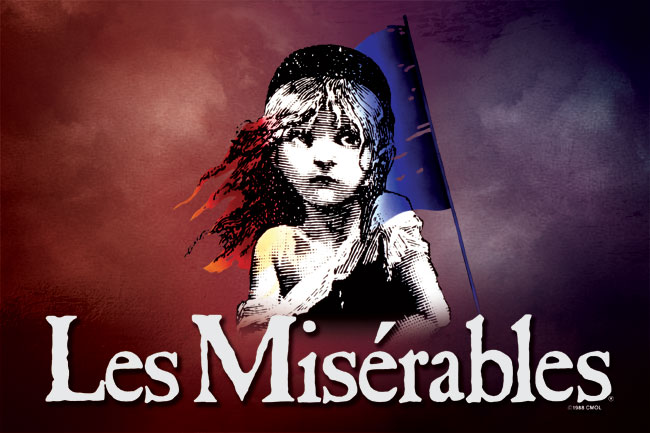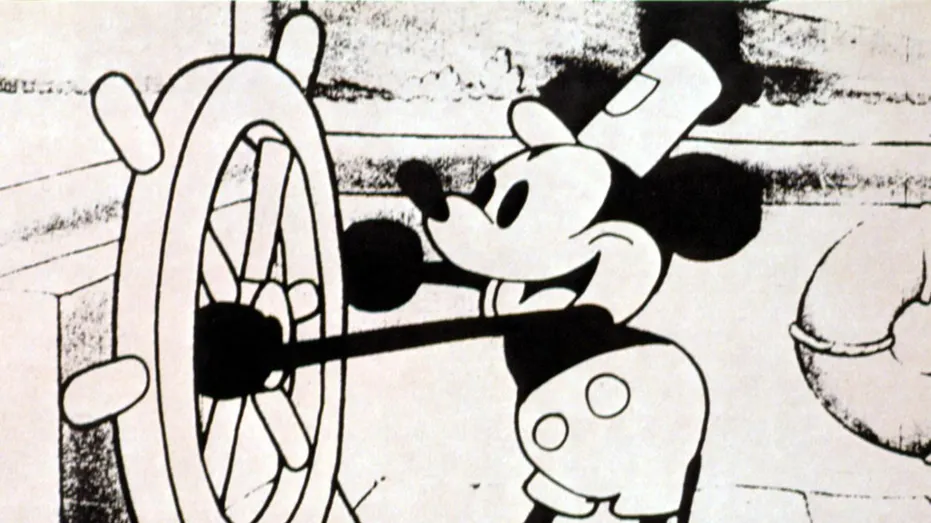Les Miserables: Classic or Overrated?
https://www.playersguildtheatre.com/les-miserables
August 13, 2019
Les Miserables is extremely well-known in a variety of groups such as the theatre, reading, and history communities. From its intriguing characters with fascinating backgrounds to tales of extreme patriotism and devout love, this story can appeal to the tastes of a very diverse audience.
This adventure was first written as a book, then produced as a famous Broadway musical, and finally filmed as a movie of the theatre production. The original novel was originally crafted by Victor Hugo (who also wrote The Hunchback of Notre-Dame) in 1845, but it wasn’t published until 1862. This classic tale is quite a hefty read, as the original version had 365 chapters, 5 volumes divided into 48 books, 1,900 pages in French and 1,400 in English according to pastemagazine.com. Definitely a substantial reading project.
BBC News states that “Les Miserables has been a global phenomenon – produced in 42 countries,” accurately proving how impactful this novel is. For those not interested in reading this monstrous book, it was converted into a musical with the same general ideas, but with additional catchy songs to compliment the storyline.
Broadway.com, a site with information on all musical topics, comments that “Les Miserables originally opened at London’s Barbican Theatre in 1985. The Broadway production first premiered at the Broadway Theatre on March 12, 1987 before transferring to the Imperial Theatre in 1990.” It currently stands as the fifth longest-running musical right behind Phantom of the Opera, Chicago, The Lion King, and Cats. Certainly, a massive reputation to uphold.
In 2012, the legendary musical was filmed in a classic movie format. The songs remained the same, but the set was much more detailed and immersive, as they did have more room to work with rather than a minuscule theater stage. Producers also hired a variety of famous actors and actresses such as Hugh Jackman, Anne Hathaway, Helena Bonham Carter, Aaron Tveit, Eddie Redmayne, Amanda Seyfried, and Samantha Barks. All these professionals came from different genres and past roles, which definitely helped add to the hype.
Before getting into whether or not it fits the description of a “successful Broadway production,” we must cover the basic plot for those inexperienced newbies. The story begins with a convict named Jean Valjean, who was unjustly imprisoned for stealing a loaf of bread for his starving family. His clear distaste for authority sparks a rivalry between him and police inspector Javert. This battle between ‘good vs. evil’ or ‘right vs. wrong’ proves to be a major theme within both the novel and musical, as their dispute fuels their every action and lasts for the entirety of the story.
Jean Valjean, or Prisoner 24601, is sent out on parole, which he breaks as he steals from a kindly bishop, who in turn gives him everything he stole as an incentive to begin a new life. Long story short, this lowly prisoner who we started with, has shed his skin and hid his identity by becoming Monsieur Madeleine, a wealthy businessman. With this new façade, Jean Valjean encounters Javert once more and meets Fantine. This woman worked for Jean Valjean until getting fired, leaving her with no way to pay for her daughter’s expenses with the town’s innkeeper, whom she stayed with. Fantine, now desperate for her daughter’s welfare turns to more sinister ways to earn money, eventually coming down with pneumonia.
Fantine comes face to face with Jean Valjean and vocally places her struggles on him, as he did nothing to stop his foreman from firing her. Feeling a pang of immense guilt for his past actions, Jean Valjean takes her in and Fantine begs him to provide for her beloved daughter. With that, she dies and Jean Valjean is left with Javert who has revealed his true identity and broken parole.
After an intense yet awesome battle, Jean Valjean escapes Javert once more and sets out to free Cosette, Fantine’s daughter, from the abusive innkeepers. With this unlikely family of a wanted criminal and an orphaned child, the duo takes refuge in a convent where they spend the next nine years.
After this considerable time period, Paris is in upheaval as the rich continue to take advantage of the poor. The revolutionaries such as Enjolras, Marius, and Gavroche work to start a revolution against this tyranny. Yet amidst all this chaos, Marius and Cosette fall in love, severely betraying Marius’ secret admirer Eponine. With this newfound love and cries for war, Act I concludes.
An overwhelming amount of action in one scene, I know, but it gets better. Act II begins with the revolutionaries building their barricade and starting a revolution. In this rebellion, Gavroche dies for ammo, Eponine dies to save Marius, and pretty much every other character dies. Marius is the only survivor, as Jean Valjean comes to his aid to save his adopted daughter’s love.
While Marius is reunited with Cosette and nursed back to health with severe survivor’s guilt, Javert commits suicide as his morals contrast his true feelings for the innocent criminal he has spent his whole life chasing. With all this sudden death, one would think that it’s all over and we will now get a happy closure…yet do any musicals really have a fairytale ending?
Marius and Cosette are wed and live wondrous lives together, but Jean Valjean leaves them fearing his identity would cause them harm. When they finally find him back at the convent, he is at death’s door and only has time to tell the couple his life’s story before he passes away to join the rest of the valiant revolutionaries. And thus the musical has come to an end.
Indeed, it is quite the story with intertwining plotlines that all seem to connect in one way or another. Yet at the end of the day, I find myself asking, why is this production so popular? It’s filled to the brim with death and very few happy endings, so why do people seem to adore it so much?
I think it’s very well due to the fact that many label it as ‘a classic’ for nearly everyone has seen either the movie or the live musical. But there are so many other shows out there that deserve just as much attention. Now, take into consideration that I am in no way trying to undermine the wonder of Les Miserables. I am a huge fan of the musical and have even taken time to hand sew the trademark pins, despite my limited experience with needlework. Yet my questions still persist, why is it so widely cherished?
Personally, I believe its reputation precedes it. Our parents have watched it, and their parents have, so in a way it has become a standard. Just like the Phantom of the Opera, we are expected to continue the tradition. Or like the Alchemist. Generations before us have read it, so naturally, we do as well. Yet when it comes down to it, do any of us really know what it means?
This performance is set before the French Revolution in 1832, so how can we possibly try to connect with it? Most readers (maybe a few exceptions) have never gone to jail for stealing a loaf of bread, or built a massive barricade in the middle of town, or found literal ‘love at first sight’ while hardly even knowing the girl.
While we may not identify with the events, we can find ourselves in the basic ideas. From the heroic patriotism to the childlike hopefulness, to the guilt of past mistakes, we can all find something to relate to. And maybe that’s why it is so beloved. First, because it’s considered a “theatrical classic” but also because we can find hope in the character’s vivid ideals.
Yet, we can all admit that the end is a bit of a downer. First, the motherly Fantine dies, then ALL the revolutionaries (except Marius), then Javert commits suicide, and then finally Jean Valjean dies of old age after secluding himself from the world. But are there really any musicals with happy endings? The Phantom of the Opera doesn’t win his love, Evan Hansen remains an insecure kid, Hamilton dies in his own story, Elphaba fakes her death to her only friend Glinda, and the list goes on and on. I think it’s about time for a change in pace. Enough with all the depressing endings. The world is depressing enough as is. Audiences need more stories that incite joy and happiness, thus giving us hopes for real life. Yet maybe that’s why Les Miserables is so popular, as it does seem to fit the gloomy theme.
No matter the reason why Les Miserables has and always will be a fan favorite. Those not even remotely interested in Broadway can easily identify the more famous songs like “I Dreamed a Dream” or “On My Own.” So why fight the musical’s craze when we can join in on the fun? I may think it’s overrated yet I am still going to see it this weekend at the Pantages production in Los Angeles. Whether or not you’ve hopped on the musical bandwagon or are still unsure of its appeal; I recommend reading it, watching the movie, or going to see the live performance. After all, it is a classic.













Gordon Lefort • Sep 29, 2024 at 8:18 am
This book, War and Peace, the Count of Monte Cristo and David Copperfield, are the four great books that should be read during your lifetime